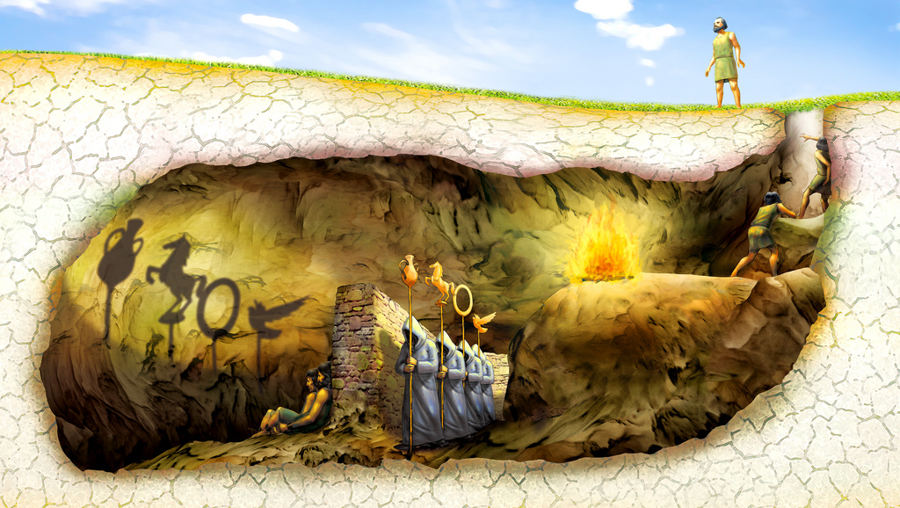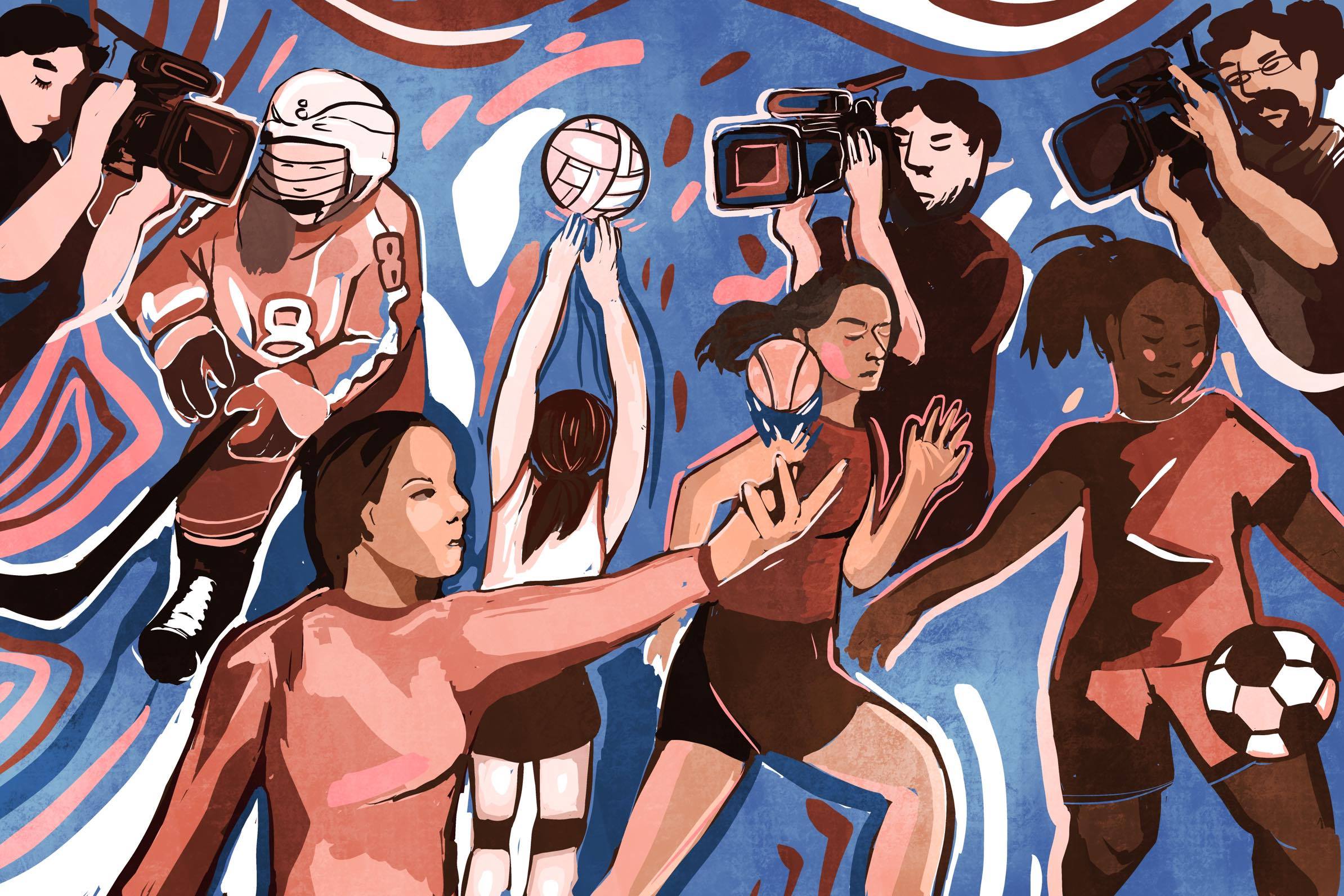Jin Schofield (11) || Editor and Reporter
In Plato’s Allegory of the Cave, he hypothesizes that a freed prisoner, upon being forced to confront the false nature of his reality, would consider this newer world superior to his original conception of reality. His fellow prisoners, upon being informed by the freed prisoner of the outside world, would believe he was harmed by his discovery, and would vow to kill anyone who tried to remove their illusion (“Republic”). This ignorance may be bliss for Plato’s fictional characters – but, for the whole of humanity, it is nothing less than a threat to their survival.
According to Nick Bostrom, there are three possible outcomes regarding the future of humanity and the likelihood of simulations (virtual worlds created by another intelligent being). Of these three possibilities, only one results in humanity creating simulated realities (Bostrom 2003). If this last possibility is fulfilled, it becomes unlikely that the universe we live in is the single ‘foundational universe’ that was created naturally. The series of simulations that would have been created by the original non-digitized humanity, would each be capable of programming their own simulations – resulting in layers of simulations that would extend to infinity. Given that we could be living in a universe where humanity learned to create simulations, the question arises of whether it is beneficial to know if we live in a simulation. However, upon a series of deductions and references to human nature and history, it is clear that it is beneficial for humanity to know whether it lives in a simulation.
In order to answer this question, we must assume that we live in the possible outcome where simulations are created, that we live in a simulation, and that it will be possible for us to discover so. We cannot consider the possibility that the simulation was created for one sentient being to experience, in which the surrounding beings are insentient. This is because the one sentient subject could not confirm which beings are sentient, and therefore should assume that all beings are sentient in order not to risk causing the suffering of billions of human beings assumed to be insentient if taking drastic action. For the purposes of this essay, “real” refers to being consisted of empirical matter, and not virtual matter.
Given these assumptions, whether we would want to know if we lived in a simulation is dependent upon whether life in a simulation would be preferable. Assuming that the ‘foundational universe’ is similar or identical to our own, it is clear that living in a simulated universe would not be beneficial. This is true because our entire existence would be dependent on other beings – those found in the real world. Being in a simulation is not preferable, as it means we were created for a specific purpose, causing several detriments to arise. Firstly, this would mean we are not necessarily created to last a long time (if we are created for the purposes of research, labour, or exhibition, which take limited amounts of time), as prolonging our existence past our purpose would waste computing power or effort for our simulation operators. Secondly, this would mean that, if created for labour, research, or experimentation, we will be used to face some hardship or risk that the simulation operators are choosing not to face – making our quality of life worse than if we were not in a virtual reality. However, if humanity is a byproduct of a simulated universe which was created for a reason not involving ourselves, this would make us worthless to the simulation operators. This would create a risk of the operators removing us from the simulation if we overly impact their actual subject of study. The only case in which this would not matter is if the simulation programmers purposefully would not interfere with the simulation, intending the universe to exist uninfluenced. This is unlikely, as there are few uses for a simulation that cannot be altered. Yet, even if this is true, another detriment arises from being in a simulated universe. This would be that our existence would depend upon the sustained existences of every nested layer of virtual simulation ‘above’ us (those human societies that created the simulations that created us). This makes it less likely for humanity to survive because our survival would depend upon the survival of every other society in the simulation chain. Ultimately, regardless of our creators’ purpose in creating us, it would never be preferable for humanity to live in a virtual universe.
Given that there are specific dangers associated with living in a simulation, whether humans should know that they live in a simulation can be argued on two fronts – the socio-psychological impact such a discovery would have on humanity, and the practical impact of what this knowledge could have on humanity’s safety.
Discussing the socio-psychological impact, there are two different aspects of humanity’s understanding of itself that would be impacted – humanity’s tendency to believe it is uniquely special, and its understanding that it is independent and alone. Regarding humanity’s identity as a special species, if humanity learns it is the byproduct of a virtual reality created for a different reason, it might simply live on as it normally does. This is because its creation will have been still caused by natural selection, and humanity would remain a collection of algorithms. For the majority of people who believe humanity evolved naturally, their philosophy would be confirmed. For those who believe in a larger creator, such as the Christian God, the same faith that guides them to believe in humanity’s special identity will likely continue to do so. However, if humanity learns that it was specifically created by their simulation operators, and for a specific purpose, this would not derail all of human philosophy. Humanity, in large populations, has proven willing to defy oppression, or at least maintain their sanity and integrity when enslaved or stripped of their identities. For example, the early Christians in the first two centuries of the Roman Empire faced immense oppression, but continued to work in their own self-interest and maintain their identity. Regarding humanity’s understanding of itself as alone, it will now simply be aware that there is a larger being above them. As has happened throughout history, such as when the Normans dominated Anglo-Saxon society after 1066, where less powerful populations have encountered more powerful populations, humanity’s instinct has remained primarily to survive and thrive within its tough circumstances. In fact, at the core of most religions (such as Greek or Egyptian mythology), is the belief that humans must accept their inferiority to a coterie of masters, meaning humanity would easily adapt by appeasing another society. The insignificance of being the product of a simulation is not anymore disheartening than the insignificance of being on Earth amongst billions of other planets. Either way, humans will always keep their own self-interest in mind, and adapt to their surroundings.
Given that the socio-psychological impact of discovering a virtual reality will be negligible in comparison to humanity’s survival as a whole, it will now be explained how this knowledge would benefit us in terms of safety. Firstly, the knowledge of our virtual reality would allow us the opportunity of possibly changing the simulation – the world we live in. This can be done by learning more about the design of our universe, and allowing us to navigate our own universe easily and covertly without alerting our simulation operators. Secondly, this can be done by allowing us to prepare for the threats of what is beyond the simulation. As mentioned, the intentions of the simulation operators will likely be to exploit us, and if not, we will be endangered because of our precarious position as dependent upon our placement in other universes. By gaining knowledge of the outside reality beyond our own, this will give humanity the potential to protect its own universe by manipulating the outside universe. For example, humanity could influence people outside of their universe in order to surreptitiously save their universe. Lastly, in the event that our universe is destined to terminate, knowledge of the outside world would allow humans to prolong their own consciousness or universe by transferring the software to a different area within its predecessor universe. Ultimately, the knowledge of our placement within a chain of virtual universes would allow us the opportunity to prolong our existence, and is therefore beneficial to us.
In conclusion, in a universe where humanity lives in a simulation and has the capability to realize so, it is in humanity’s best interest that we seek out the truth. While Plato’s prisoners are safe in their cave, the stability of our own cave is on the knife’s edge of survival.
Works Cited
Bostrom, Nick. “Are We Living in a Computer Simulation?” The Philosophical Quarterly, vol.
53, no. 211, 2003, pp. 243–255., doi:10.1111/1467-9213.00309.
“Republic.” Oxford Worlds Classics: Plato: Republic, 1994,
doi:10.1093/oseo/instance.00246980.



